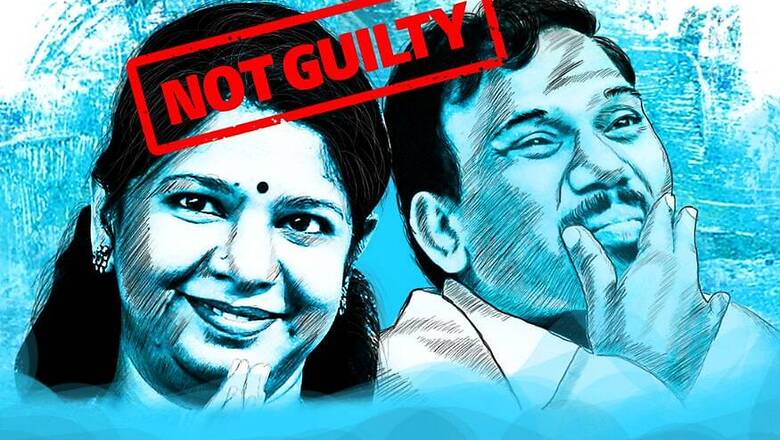
views
Close on the heels of the party's improved performance in Gujarat and victory in most of the civic bye-polls in Rajasthan, the Congress on Thursday got the good news that the CBI special court has acquitted all the 17 accused in the 2G telecom spectrum allocation case for want of evidence.
Call it the beginner's luck. Clearly, after years of bad news for the party under his informal stewardship, the last one week has brought some cheer for newly-anointed Congress president Rahul Gandhi.
But the big question is whether this luck will hold out?
Congress leaders, starting from former Prime Minister Manmohan Singh to Kapil Sibal, P Chidambaram, Anand Sharma and others were quick to brand the verdict as a vindication of their stand that there was no scam.
The CAG’s deduction of a “presumptive loss” and the BJP’s allegations of Rs 1.76 lakh crore scam in 2G allocations in 2008 had seared the Congress, its leadership and the Singh regime, particularly as this was followed by allegations, including of coal, chopper, Tatra truck, Adarsh housing society and Commonwealth Games scams.
The result: The Congress — and its ally, the DMK whose leaders A Raja and Kanimozhi were incarcerated in the 2G scam — were wiped out in the 2014 Lok Sabha and assembly elections while an aggressive BJP and Narendra Modi soared the popularity and electoral charts.
Impact of the verdict
Thursday's acquittal promises far reaching implications for all the parties concerned even though the last has not been heard of the case as the CBI will file an appeal against the verdict.
It puts the BJP, with its call of a Congress-mukt Bharat, on the backfoot as a recharged Congress has begun to use the verdict as a stick to beat it with for unleashing a “false and baseless” propaganda that sullied the country’s image, frightened away investors and weakened institutions.
It provides a huge and godsend opportunity to a highly relieved Congress to take the high moral ground and use the verdict to repair the damage done to it and its leaders’ image and rebuild its connect with people disillusioned with it, especially among the middle classes in urban India.
And it gives a new boost to its ally the DMK (also being courted by the BJP in the political flux of a post-Jayalalithaa phase) which will immediately feel the impact of the verdict in the late AIADMK leader’s constituency of R K Nagar where voting was taking place on Thursday even as the verdict was being delivered.
Congress fights for redemption
As it seeks redemption in the wake of the verdict, the Congress is preparing for a long-drawn battle with the BJP on three interlinked fronts: in Parliament, on the ground (especially in urban areas where the saffron brigade is strong) and at the level of perceptions.
The ongoing session of Parliament is a ready platform for this. The Congress has been demanding an explanation and an apology from the Prime Minister for alleging that the Gujarat elections were discussed at a dinner hosted for Pakistani delegates and attended by Manmohan Singh. It will now seek an additional one from his and the ruling party for besmirching Singh’s image over 2G allocations and for stalling the winter session of 2010 on the issue. It intends to send out signals from here about its innocence and hopes that the people will be convinced by it.
The real ground level impact of the verdict will be seen in the 2018 assembly elections in eight states, including in Congress-ruled Karnataka in the first half of the year and in November-December in BJP ruled Madhya Pradesh, Chhattisgarh—where it has been out of power since 2003—and Rajasthan which has alternated between the two parties. More so, as the implications of the CBI’s appeal against the verdict will take its own time to unfold.
The Congress’s performance in Gujarat and the unshackling of the 2G millstone from its neck has given a new confidence to the party about its ability to take on the Modi juggernaut which has been on a winning spree, barring exceptions like Delhi, Punjab, where it was a junior partner of the Akali Dal or Bihar in 2015 where it was defeated by the JD(U)-RJD-Congress Grand Alliance until chief minister Nitish Kumar renewed his ties with the BJP.
Indeed, its Gujarat allies are also expected to pitch in, especially in Rajasthan. Mevani has already announced that he would also campaign in Karnataka.
The possibility to take on the BJP and other parties in the 2019 general and state elections will increase if the Congress is able to retain Karnataka and capture power in Madhya Pradesh and/or Chhattisgarh in addition to Rajasthan.
Battle of perception, urban seats & middle India
But before it can do so, the Congress needs to work on two key factors that decide the fate of any party. It has to win the battle of perception vis a vis the BJP and Modi among the people and improve its standing in the urban areas and among the middle classes in particular who had jettisoned it for the BJP in the wake of allegations of serial scams.
Take for instance the Congress’s victories in 2004 and 2009. The first was attributed to Sonia Gandhi’s ability to forge a Congress-led anti-BJP alliance, keep the leadership issue in abeyance till after the polls and give the Congress a pro-poor and pro-people tilt with its emotive slogan of “Congress ka haath, aam aadmi ke saath” in sharp contrast to the BJP-NDA’s lopsided “India Shining” campaign. This fetched her the rural votes and the votes of allies. Post victory, she renounced the post of Prime Minister and installed Manmohan Singh instead.
The Congress returned with a bigger score—though way short of a majority of its own—in 2009, riding on the goodwill generated by the UPA’s people-oriented programmes and enactments including the farm loan waiver and the right of information, among others. The trimurti of Sonia-Singh-Rahul gave a fillip to the party: Sonia pulled in the rural voters, Singh enhanced the party’s profile among the middle classes in urban areas and Rahul was projected as a youth leader for a demographically young India.
But all that began to unravel in UPA-2 as allegations of scams began to surface and an aggressive BJP, spearheaded by Modi, changed the narrative to replace the Congress as the dominant pole in Indian polity and establish its footprint across the country.
After a spate of debacles across the country, the Congress began to show some signs of life in rural pockets as in the recent civic by-polls in Rajasthan or in Gujarat’s 2015 local elections and 2017 assembly polls. But urban centres are still out of its influence.
Despite the negative impact of GST and demonetisation, the BJP retained its hold on central Gujarat which includes Surat—the hub of the diamond and textile industry—Vadodara, Ahmedabad and Rajkot. It captured 44 of their 55 seats in this region while the Congress won 68 of the 127 rural and semi-urban seats to the 55 in the BJP’s kitty.
That the urban areas are not exclusively the BJP’s domain was underlined in 2009 when the party had bagged 115 seats in metros and towns across the country, doubling its 2004 tally from these regions. More specifically, it had won as many as 20 Lok Sabha seats from major metros at that time. More recently, it sneaked in with four seats of the 16 seats in Ahmedabad city and two in Vadodara.
However, the growing urbanization and semi-urbanisation of the country and the rising graph of its middle class population underlines the challenge that the Congress has before it in increasing its presence in these areas. The number of urban and semi urban seats has now grown to over 200. According to the 2011 census one in every three Indians now lives in an urban area.
Since there is no standard definition of a middle class, estimates about its actual numbers vary sharply though the general consensus is that it is increasing rapidly and is an important segment in steering the course of the economy and polity and needs to be tapped by policy makers and political parties striving to increase their base.
Notwithstanding Thursday's verdict, the Congress will have to struggle hard to change the perception that has hardened over the last decade of a scam-ridden party and regime. In a way, the party finds itself in a situation akin to 1996 when it lost power at the Centre following similar allegations. Sonia then stepped into politics in 1998-99 in order to protect the Nehru-Gandhi legacy and resurrect the party. It took her almost seven to eight years of hard work to recast the party's fortunes.
The Road Ahead
The party'’s road to redemption is not going to be easy this time either. The BJP is unlikely to sit back and let the Congress wear the verdict as proof of its cleanliness or use it as a weapon to attack it with. The faceoff between the two parties would intensify in the coming days. Further details of the other UPA scams are likely to emerge to keep the issue of corruption in high places alive. Since the CBI would also file an appeal against the 2G verdict, the hearings on it would come closer to the 2019 national elections and probably influence the outcome once again either in favour or against it.
— Author is a veteran journalist. Views are personal














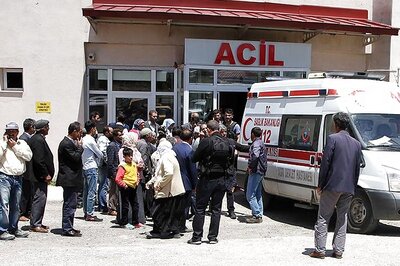
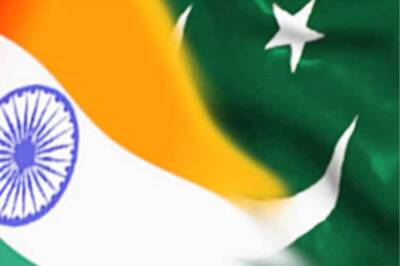
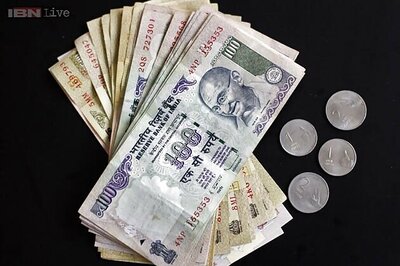


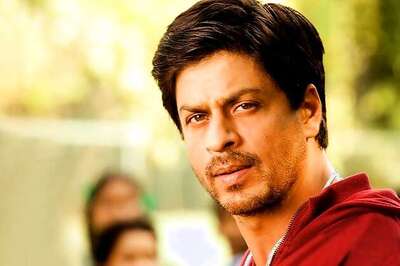
Comments
0 comment